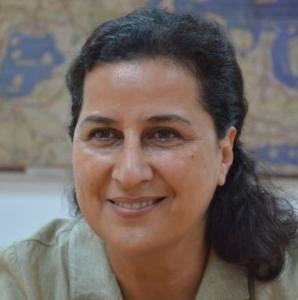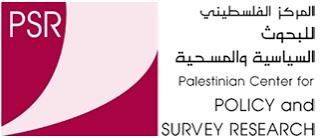The Central Elections Committee and the need for holding General Elections - Auslandsbüro Palästinensische Gebiete
Expertengespräch
Details
The main presentation was submitted by Dr. Ali Jerbawi, the Secretary General of the Central Elections Committee, and Mr. Mohammad Hourani, a member of the Palestinian Legislative Council.
This workshop aimed at highlighting the role and basis for the work conducted by the Central Elections Committee (CEC) in preparation for the upcoming National Public Elections, the obstacles and difficulties they are experiencing in their work, the legal and constitutional environment they are working in, the political aspects (independency, capability to guaranty an equal participation for all candidates and electors, and the freedom of elections campaigns for all candidates).
Dr. Khalil Shikaki, director of PSR had started off by giving a brief introduction to the speakers, the topic they are heading to lecture, raising some questions about the role of the CEC, where it reached in the preparations for conducting the elections, what are the difficulties they are facing, and what in their opinions might be the reasons that are causing the delays in holding elections. He also requested them to clarify the possibility of holding the elections now, and if not, why? And also, why we do not put some pressure on those and what might be the reasons and obstacles that are preventing us from conducting the elections now.
Dr. Jerbawi focused on three basis in his lecture, those basis are: the goal and the objective of holding the elections; level of the standards and electoral measures we need and want; and the necessary needed requirements for those elections, taking into consideration the connection and correlation between those basis. He also promoted to explain the objectives of having the elections to whether it was to change the leadership, or just to establish the basis for a good reliable Palestinian Political Structure that will enjoy periodical democratic elections, saying that till now, there is no agreement or final approval for the objective of conducting the elections, and that’s possibly why elections are not held up to date.
In connection to determining the standards and regulations of the electoral process, he sees that it is directly related to the goal of having those elections, as, once you start thinking of determining the standards and regulations, one should think about the range of electoral transparency and credibility needed in the electoral process, in addition to careful search for the parties that will supervise the whole process from A to Z. Furthermore, we should be specific and cautious in looking for the funding and necessary support for the whole process.
In regard to the final issue, which is the requirements for conducting the elections, he said, that we should focus on two parts: the first one is the political part; and the second should be the technical part. The political part relates to determining the date to conduct the elections, and according to which legislation, the formerly passed and signed legislation, or if there would be a necessary to legislate a new draft that handles the quota and the mixed political system issues. The second part, relates to the technical issues, that handle all the logistics in conducting elections (electoral registration, procedures, supervision, reaching the electoral centres….etc). Dr. Jerbawi also highlighted the establishment of a work plan schedule for the elections with the duration of 9 months: 3 months for general preparations; 3 months for electoral registration, and 3 months for the electoral process itself. The elections committee had stated two goals, First: to conduct elections according to the highest level of transparency, accountability and credibility. Second: Establishment and development of an electoral institution to run and manage a continuous electoral process.
He finished his presentation by highlighting some of the accomplishments of the committee and the obstacles it faced and still facing until now.
PLC member Mohammad Hourani expressed the elections are one of the necessary components of reform, and that it is an internal and external demand, he also talked about the positions of the political factions from conducting elections, he said that most of those fractions are hesitant on whether to participate in the elections from a political point of view, or an organizational point of view, even the Fatah movement, this topic didn’t have much attention or concern, until after the meeting of the Revolutionary Council three months ago.
He also talked about the position of the PLC towards the amendment of the elections law, where he expressed the willingness and will of the council to pass the amendment that will deal with the women’s quota and the mixed system, in addition to the previous one that deals with the issue of electoral districts.
In addition, he talked about the International parties and the effect they have on the electoral process.
Then, discussion was open to all participants, where a strong debate was going on, one of the participants, Dr. Azmi Shuaibi, PLC member and Director of AMAN, said that the Palestinian fractions are not quite serious about elections, especially, the two greater fractions, Fatah and Hamas, and that he thinks because each party has their own calculations and considerations. Fatah is experiencing a crisis because of the siege around the President, and the corrosion of its leading role, while Hamas is taking advantage of this situation because its popularity is increasing on the PA’s expense.
Mr. Adnan Odeh, Director of the PRU, doubted the independence and reliability of the elections committee because it was established by the order of the executive authority, hence it will not be able to face this power or to challenge it, if it become necessary to do so. In addition to that, he suggested that registrars for votes, go to electors in their living areas or even their houses.
Mr. Nayef Sweitat criticized the current electoral system, demanding amendment as soon as possible, and requested for conducting the National Elections immediately as a way to exit the current crisis and political mess the Palestinians are living in and to conduct elections even with a low standard of regulations because in anyway, it should be much better than continuing living under the current circumstance.
In general, most of the participants agreed, focused and recommended the necessity of conducting the elections, and to amend the current public elections law in a civilized and reliable way.




